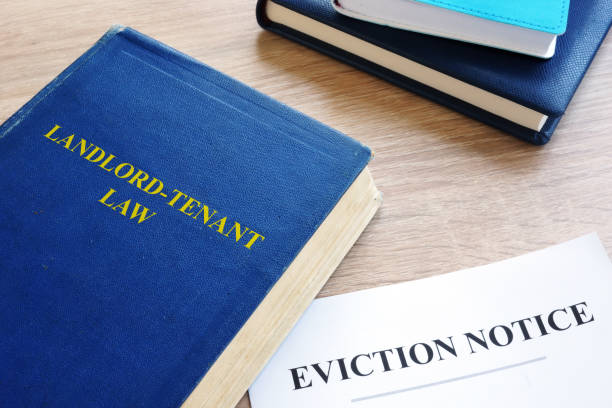
Understanding Kansas Squatters’ Rights: From Historical Roots to Future Conflicts
Kansas squatters’ rights have a storied past, rooted deeply in the history of American westward expansion. Historically, squatters in Kansas, much like in other parts of the West, settled on land not legally their own due to the vast expanses of unclaimed territory available during the 19th century. This practice was especially common before the legal frameworks for land ownership were firmly established.
Early Laws and Influences
During the early to mid-1800s, the settlement of Kansas was marked by the emergence of “claim clubs” or “settlers’ syndicates.” These groups played a significant role in establishing informal regulations regarding land claiming and settlement. In the absence of formal legal structures, these clubs developed customary laws that later influenced the formulation of formal legal statutes, particularly in relation to squatters’ rights.
Claim Clubs and Settlers’ Syndicates
Claim clubs and settlers’ syndicates were grassroots organizations formed by pioneers and settlers moving across the plains of Kansas during the 19th century. These groups served as communal bodies, establishing rules and guidelines for claiming and settling land.
Informal Rules and Customary Laws
In the absence of established legal authority, claim clubs devised informal rules to govern land claiming processes. These rules varied but typically addressed issues such as:
- Boundaries and Limits: Claim clubs defined the boundaries of claimed land and set limits on the size of individual claims to prevent excessive land accumulation by single individuals or groups.
- Allocation Methods: Methods for allocating land among settlers were established, often through lotteries, auctions, or predetermined allocations based on membership or contributions to the club.
- Conflict Resolution: Procedures for resolving disputes over land claims were implemented, ranging from arbitration by club members to expulsion of individuals violating established rules.
Development of Squatters’ Rights
Squatters’ rights emerged as a fundamental concept within the framework of claim clubs. These rights granted settlers certain privileges and protections over land they occupied and improved, even in the absence of formal ownership titles. Key aspects of squatters’ rights included:
- Possession and Improvement: Settlers who occupied and improved unclaimed land were afforded certain rights to maintain possession and, in some cases, secure legal title to the land.
- Priority Claims: Squatters who had resided on and improved land for a certain period often had priority rights to purchase or claim ownership over the land, preempting other claims.
- Recognition in Formal Law: Over time, the customary practices and principles of squatters’ rights became recognized in formal legal statutes, shaping land tenure systems and property laws in Kansas and beyond.
Influence on Formal Legal Statutes
The practices and principles established by claim clubs and squatters’ rights significantly influenced the development of formal legal statutes governing land ownership and settlement in Kansas. As the territory transitioned to statehood and formal governance structures were established, many of the informal rules and customary laws devised by claim clubs were codified into official legislation.
The Legal Evolution of Squatters’ Rights in Kansas
The concept of squatters’ rights in Kansas has undergone significant transformations over time, shaped by both state and federal legislation. Understanding this legal evolution is crucial for grasping the impact of these rights on contemporary land use and property law disputes.
Key Legislative Changes
| Legislation | Description |
| The Homestead Act of 1862 | A pivotal federal legislation, the Homestead Act of 1862 allowed individuals to claim up to 160 acres of land, provided they improved it and resided on it for a specified period. While primarily federal in nature, this act indirectly supported the ethos of squatters’ rights by legitimizing the possession and cultivation of unclaimed land. |
| Kansas Statutes | Current Kansas laws outline the criteria for making an adverse possession claim, including squatters’ rights. According to Kan. Stat. § 60-503, a squatter must occupy a property continuously for a period of 15 years to establish adverse possession rights. |
Modifications and Revisions
Over the years, Kansas has implemented various modifications and revisions to property and land use laws, directly impacting squatters’ rights. These changes aim to refine the legal framework surrounding adverse possession, ensuring the protection of property rights while preventing fraudulent claims. Some notable modifications include:
- Tightened Requirements: Kansas has tightened the requirements for adverse possession, making it more challenging for squatters to establish a legitimate claim. Stricter criteria, such as continuous occupancy for a specified period, aim to deter opportunistic or unlawful land seizures.
- Fraud Prevention Measures: Legislative revisions often include provisions aimed at preventing fraudulent claims of adverse possession. These measures may involve enhanced documentation requirements, stricter scrutiny of claimants’ intentions, and mechanisms for contesting suspicious claims.
- Clarity in Legal Procedures: Kansas statutes may undergo revisions to clarify the legal procedures and timelines associated with adverse possession claims. Clearer guidelines help streamline the adjudication process, reducing ambiguity and ensuring equitable resolution of disputes.
Public Awareness and Opinion on Squatters’ Rights

Public awareness and opinion regarding squatters’ rights in Kansas exhibit a spectrum of understanding and perspectives. While some residents are well-versed in the intricacies of adverse possession laws, many others remain unaware of the specifics unless directly confronted with related issues.
Awareness Levels
Public awareness regarding Kansas squatters’ rights varies significantly. While some individuals, particularly those involved in real estate transactions or legal matters, possess a thorough understanding of adverse possession laws, the broader population may have limited awareness. Many residents only become acquainted with these laws when they encounter property disputes or legal challenges related to adverse possession.
General Consensus
Opinions on squatters’ rights in Kansas are diverse and often influenced by personal experiences, values, and socioeconomic factors.
- Property Owners’ Perspective: Property owners typically oppose squatters’ rights, viewing them as a threat to their ownership and control over their property. The idea that individuals could gain legal rights to their property through adverse possession, without their explicit consent or knowledge, is often met with skepticism and concern. Property owners may fear the loss of their investment, security, and autonomy over their land.
- Advocates of Social Justice: On the other hand, there are individuals and organizations advocating for squatters’ rights as a means of addressing social inequality and homelessness. They argue that unused or abandoned properties represent wasted resources that could be repurposed to provide shelter for those in need. Advocates view squatters’ rights as a form of social justice, enabling marginalized individuals to access housing and utilize vacant properties for the greater good of the community.
Protests and Public Discourse
In recent years, instances of squatting have sparked public protests, especially in urban areas characterized by housing crises and affordability challenges. These protests serve as platforms for advocating broader social and economic issues, such as housing affordability and homelessness, while also drawing attention to the utilization and misappropriation of urban land.
Instances of Squatting
Squatting, the act of occupying abandoned or unused properties without legal permission, has become more prevalent in urban areas facing housing shortages and escalating rent prices. Individuals and groups facing housing insecurity often resort to squatting as a means of securing shelter and addressing their immediate needs.
Public Protests
Instances of squatting frequently trigger public protests, organized by activists, community groups, and affected individuals. These protests serve multiple purposes, including:
- Raising Awareness: Public protests draw attention to the underlying issues of housing affordability, homelessness, and urban land use. By highlighting specific cases of squatting, protesters aim to shed light on systemic inequalities and the failures of existing housing policies.
- Advocating for Change: Protesters use public demonstrations as a platform to advocate for policy changes and initiatives aimed at addressing housing crises. They call for increased investment in affordable housing, stricter regulations on property speculation, and comprehensive measures to combat homelessness.
- Challenging Stigmatization: Squatting protests challenge the stigma associated with homelessness and squatting. Activists argue that individuals resort to squatting out of necessity, driven by socioeconomic factors beyond their control. By humanizing the issue, protesters seek to foster empathy and understanding among the broader public.
Linking to Broader Issues
Protests against squatting often link the practice to broader social and economic issues, emphasizing the interconnectedness of housing, poverty, and urban development. Key themes addressed in these protests include:
- Housing Affordability: Protests highlight the growing gap between housing costs and income levels, particularly in urban centers. They demand policies that ensure affordable housing options for all residents, regardless of socioeconomic status.
- Homelessness: Squatting protests draw attention to the plight of homeless individuals and families who lack access to safe and stable housing. They call for increased support services, housing assistance programs, and initiatives to address the root causes of homelessness.
- Urban Land Use: Protesters critique the speculative use of urban land, where properties remain vacant or underutilized for extended periods. They advocate for policies that prioritize the equitable distribution of land and promote sustainable urban development.
The Process of Claiming Squatters’ Rights in Kansas
Claiming squatters’ rights, legally known as adverse possession in Kansas, involves several key steps:
| Requirement | Description |
| Actual Possession | The first requirement for claiming squatters’ rights in Kansas is actual possession of the land. This means that the squatter must physically occupy and use the land as if they were the rightful owner. Merely expressing an intention to possess the land is insufficient; the squatter must demonstrate tangible occupation and utilization. |
| Open & Notorious | The squatter’s possession must be open and notorious, meaning it must be obvious to anyone, including the legal owner of the land. The occupation should be conducted in a manner that would put the owner on notice of the squatter’s claim. This requirement aims to prevent clandestine or secretive attempts to claim ownership through adverse possession. |
| Exclusive and Continuous | Possession must be exclusive and continuous throughout the statutory period prescribed by Kansas law, which is typically 15 years. Exclusive possession means that the squatter’s use of the land should be without sharing it with the legal owner or others. Continuous possession requires that the occupation remains uninterrupted for the entire statutory period. |
| Hostile | In the context of adverse possession, “hostile” does not imply aggression or animosity towards the legal owner. Instead, it signifies that the squatter’s possession is without the permission of the owner. Even if the squatter initially entered the land with the owner’s consent, the possession becomes hostile if the squatter later asserts ownership rights adverse to the owner’s interests. |
Future Conflicts and Challenges
Looking forward, Kansas squatters’ rights are likely to be a flashpoint for conflicts, particularly as urban areas expand and the pressures on land use increase. The evolution of these rights hinges on various factors, including legislative revisions, socio-economic trends, and public opinion.
Legislative Revisions
Looking ahead, legislative revisions could profoundly impact Kansas squatters’ rights. Changes in laws may tighten or relax regulations concerning adverse possession, depending on various factors such as urbanization rates and housing demands.
- Potential Tightening: Lawmakers might introduce stricter regulations to protect property rights, especially in rapidly urbanizing areas. This could involve measures to prevent unauthorized occupation of land and strengthen legal mechanisms for property owners to reclaim their rights.
- Possible Relaxation: Conversely, there could be efforts to relax regulations to accommodate marginalized communities or address housing shortages. Such revisions might include provisions for alternative pathways to land ownership or exemptions for certain types of land use.
Socio-Economic Trends
Socio-economic factors are pivotal in shaping the landscape of squatters’ rights in Kansas. Economic disparities, population dynamics, and shifts in land values can significantly influence the prevalence and perception of squatting.
- Impact of Economic Disparities: Rising property prices and limited affordable housing options may drive individuals or families to occupy vacant or underutilized land as a means of securing shelter. Economic downturns, on the other hand, may lead to fluctuations in squatting rates as individuals seek alternative housing solutions.
- Population Dynamics: Population growth and migration patterns can affect land use and squatting trends. Rapid urbanization may exacerbate land scarcity, prompting more individuals to resort to squatting as a survival strategy.
- Shifts in Land Values: Changes in land values, driven by factors such as gentrification or industrial development, can influence the dynamics of squatting. Increasing land values may incentivize squatting as a means of accessing valuable urban real estate, leading to conflicts over property rights.
Public Opinion
Public sentiment plays a crucial role in shaping legislative decisions and policy formulations regarding squatters’ rights. Attitudes toward squatting vary widely within communities, reflecting diverse perspectives on property ownership, social justice, and urban development.
- Community Perceptions: Public opinion on squatters’ rights can range from sympathy for individuals facing housing insecurity to concerns about property rights and urban blight. Community perceptions often influence the prioritization of legislative reforms and the allocation of resources for addressing squatting issues.
- Advocacy and Awareness: Advocacy efforts and public awareness campaigns can sway public opinion and mobilize support for legislative changes. Organizations advocating for housing rights or social justice may lobby for policies that protect squatters’ rights and provide avenues for legalizing informal settlements.
- Balancing Stakeholder Interests: Policymakers must navigate the complexities of public opinion to strike a balance between protecting property rights and addressing housing needs. Collaborative approaches involving stakeholders from various sectors can help develop solutions that are equitable and sustainable.
Conclusion
Kansas squatters’ rights embody a complex blend of history, law, and social issues. As the state continues to evolve, so too will the interpretations and applications of these rights, possibly leading to new legal precedents and societal norms.
FAQ
Adverse possession is a legal doctrine allowing someone to claim ownership of land after openly occupying it for a specific period, provided certain conditions are met.
Yes, under Kansas law, if a squatter continuously and openly lives on someone else’s property for at least 15 years, they may be able to claim legal ownership.
While not a requirement under Kansas law, paying property taxes can strengthen a squatter’s claim to adverse possession by demonstrating commitment to the property.
Property owners should regularly inspect their property, promptly address any unauthorized use, and legally evict unauthorized occupants to prevent an adverse possession claim.
Disputes can be resolved through negotiation, mediation, or, if necessary, legal action. Property owners and squatters are encouraged to seek legal advice to understand their rights and responsibilities fully.


